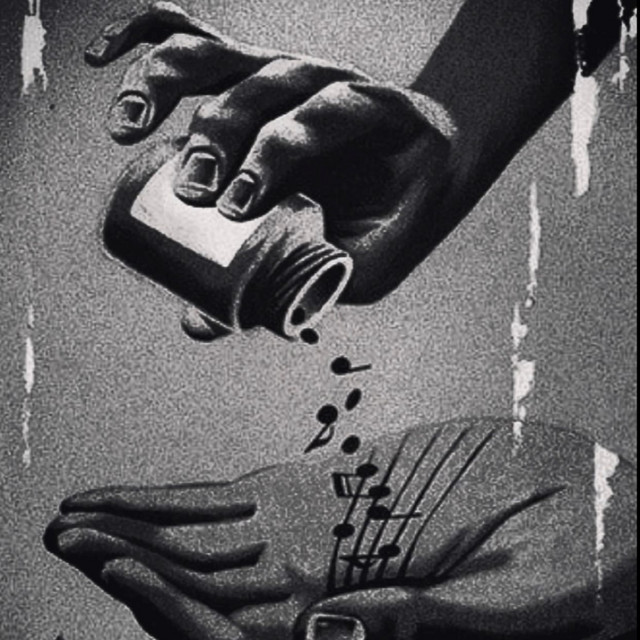One of the things that make us human is that we are all different – not one person is the same. We all have different tastes, whether that’s in music, film, art, clothing, or books, and those preferences represent a significant part of who we are. People are naturally drawn to music styles that confirm their sense of self, not only because we find comfort in things that we can associate with our identity, but also because it allows us to communicate information about ourselves in an interactive way to other people. For example, listening to creative, perhaps unconventional music can convey that one views themself as creative and unconventional, and can also lead other people to perceive them in a similar way. While this can definitely vary depending on the person, many who have a need for creative and intellectual stimulation prefer unconventional and complex musical styles (e.g., classical, jazz, folk), and people who are sociable and enthusiastic prefer musical styles that are energetic and lively (Heshmat). Because of this, it is important to emphasize that commenting on whether or not someone has “good” music taste is irrelevant, because everyone has different preferences, meaning “good” is only relative to oneself.
Relatedly, changes in preferences of music can be seen as a way to measure or identify a change in who we are, and in turn can affect how others perceive us as well. These changes may also strengthen or weaken bonds with people or groups who have similar musical preferences. Music can become the foundation of relationships we come to value deeply. It may serve as a commonality, something two or more people can agree with or relate to, and from there one might be able to deduce that, because they like the same music as the other, there must be something similar about both of their personalities
Why do we enjoy listening to the same music over and over again?
Listening to music can also be a way to reconnect with childhood memories, triggering comforting nostalgia. Due to the fact that emotions enforce memory, and in adolescence emotions are observably heightened, the lyrics to music that brought adults joy in high school are something that sticks with them throughout their lives.
Additionally, singing the lyrics of a song word for word is incredibly liberating. Many of us have been lucky enough to attend concerts for artists we love – and those nights singing at the top of our lungs have become core memories. We tend to enjoy music that we are most familiar with, which is shown in how it’s much less likely for us to listen to a new artist we know nothing about than to indulge in a playlist we have heard a hundred times before. One explanation for this is that repeated exposures can be considered as a form of classical conditioning that can increase the liking of stimuli. Repeated exposure causes us to think of that music more often, as we consider it pleasurable (Heshmat).
Depending on the mood…
Music is also a way to manage one’s mood. Many listen to music that relates to their current emotional state. Fast, upbeat, and repetitive house music can be paired with social, energetic activities. If one is preparing for a big sporting event, pump-up, motivational, and at times obscene rap songs are a popular choice because they get them in the zone. When it’s late at night and one is feeling especially sad, slow and emotionally lyrical music is usually the way to go. And everyone likely has their own playlist that they listen to while studying for a math test the next day; it could fall under a genre, or it could be all over the place. In that way, music tastes can be very random and unpredictable.
Mental and physical benefits…
Plato himself said that “music is the medicine of the soul.” Countless studies show that music can heal, or at least temporarily help, people that are sick with incurable diseases. For example, “Some people with Alzheimer’s disease sing along and engage in conversation when music from their youth is played” (Fink). This is connected to how listening to or making music increases blood flow to brain regions such as the limbic system, which is involved in processing emotions and controlling memory. When we hear music, it “lights up” (Fink).
Music’s affect on the physical body may be partially credited to how sound waves are vibrations. Vibracoustic therapy uses low frequency sounds to produce vibrations, and at least seven scientific studies have shown improvement in motor function in individuals with cerebral palsy treated with vibraacoustic therapy (Fink).
Additionally, have you ever gotten chills at a concert or while listening to a particularly moving piece of music? That may be the result of dopamine, and if your brain is particularly familiar with that piece, your body can release the neurotransmitter within hearing the first notes of the song.
Music is also naturally very complex due to all the different sounds, rhythms, and pitches that are involved. The mental processes that serve to merge the different pieces together in order to create your perception of a song are actually quite similar to reading (Fink). To understand the meaning of a text, we must first recognize and understand individual letters and sounds which make words, then sentences, followed by paragraphs, pages, and so on. The intricate complexities of music might be why evidence suggests that listening to it could help your brain process information more efficiently. A recent study showed that adults who suffered from a stroke and listened to music daily had greater improvements in verbal memory and cognition after two months than stroke survivors who didn’t.
Finally, music has the ability to distract. Focusing our minds on a song takes our attention away from pain, mental or physical, real or imagined.
I certainly feel real pain any time someone asks me “what kind of music do you listen to?” because I never give a straightforward answer. I usually respond with “everything” or “can I just show you my playlists?” because it changes on a daily basis, and I really do listen to everything. I will continue to add to my never-ending playlist, and I hope you do, too – because music improves our lives in countless ways, healing bodies, minds, and hearts, and brings people together in a magical way.
Bibliography:
(MLA citations)
Heshmat, Shahram. “Why Do We Have Different Tastes in Music? | Psychology Today.” Www.psychologytoday.com, 2 Apr. 2024, www.psychologytoday.com/us/blog/science-of-choice/202404/why-do-we-have-different-tastes-in-music.
Fink, Jennifer. “Why and How Music Moves Us | Pfizer.” Pfizer.com, Pfizer, 2020, www.pfizer.com/news/articles/why_and_how_music_moves_us.
Mike. “Music as Medicine.” Lostvoices.org, 2024, www.lostvoices.org/music-as-medicine/.

